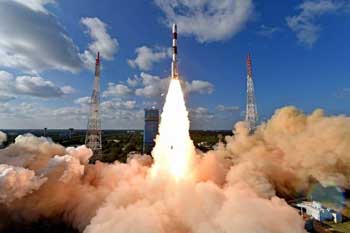As the temperature stays on the lower side of the mercury, cardiologists across north India are advising heart patients to be watchful.
Extreme cold weather not just brings flu and asthma attacks in its wake, it also increases the risk of heart attacks. In fact, evidence suggests that the number of patients reporting heart attacks increases during the winter months. However, awareness regarding these dangers remains abysmally low among people, including among heart patients.
A number of factors cause heart attacks to spike in the winter season:
- The most significant being the risk of hypothermia or a sudden loss of body temperature which can put the body in a state of shock. The body suddenly loses its capacity to produce warmth on being exposed to chill. This may also happen when a person is not adequately protected or covered. This can be extremely dangerous for people living with heart disease. In fact, a lot of people who suffer hypothermia die of heart failure. People with coronary heart disease also often suffer angina or chest pain when exposed to cold weather. The answer is in adopting complete warm protection from head to toe and dressing up in layers to prevent heat from escaping.
- Winters are more stressful to the heart as compared to summers. When the weather is too cold, the heart has to work harder by pumping more warm blood to the peripheral areas of the body. Blood pressure is also seen to rise in winters, putting people at greater risk of heart attacks.
- The arteries and veins are believed to tighten or constrict when the weather is extremely cold. This may restrict the supply of oxygen to the heart, putting it under risk.
- Another factor is shortage of vitamin D. Often in winters, the sun refuses to bestow its heat for days resulting in dark, gloomy days. A crucial impact of this sun denial may be shortage of vitamin D in the body which is not a good thing for the heart.
- Cholesterol levels often fluctuate with change in season, which may leave people with borderline high cholesterol with greater cardiovascular risk during the winter months.
How to Stay Safe:
It may sound like common sense but preventing exposure to cold is the main way to stay safe in winters. Often we do not take the cold weather seriously, dressing casually and not bothering about the impact of cold on our bodies. For healthy people, this may just bring a few days of coughing and sneezing or fever at the most. However, in people with heart ailments, this can be catastrophic. So, wear enough clothes, in layers to prevent heat from escaping. Cover yourself, head, neck and feet included with warm clothes to prevent exposure. Never step out unprotected. Always wear a head scarf to keep the head and ears insulated. Make sure you wear warm socks and gloves to minimize chances of the body losing heat and hypothermia.
Avoid exhausting yourself. The heart which is already under stress coping with the drop in temperatures might not be able to take another bout of high stress activity. Take rest between work.
Importantly, never take chest pain lying down. Any sign of discomfort and immediately rush to a doctor. This can sometimes be life saving.
________________________________________
Dr. T. S. Kler
Executive Director (Cardiac Sciences), Escorts Heart Institute & Research Centre, New Delhi.
Dr. T. S. Kler performs 2000 Cardiac Diagnostic Angiographies and 300 Angioplasties (including Stenting, Atherectomies, and Rotablations) every year.
He has many firsts to his credit:
He established the first state-of-the-art Electrophysiology department in India
In April 1995, he was the first doctor in India to implant Implantable Cardioverter Defibrillator (ICD)
In May 2000, he became the first in South East Asia to implant the Biventricular Pacemaker
In April 2002, he was the first doctor in South East Asia to implant Combo Device (Combination of ICD and Biventricular pacemaker)
In March 2004, he was the first doctor in Lahore, Pakistan to implant an ICD – at a procedure carried out at the Punjab Institute of Cardiology
He was the first doctor to start the Radiofrequency Ablation (RFA) programme in Srilanka and Bangladesh
Dr. Kler also arranged the first Indo-Pak Heart Summit at Amritsar, Punjab on April 10th-11th, 2004 thus bringing the doctors of both the countries together.














